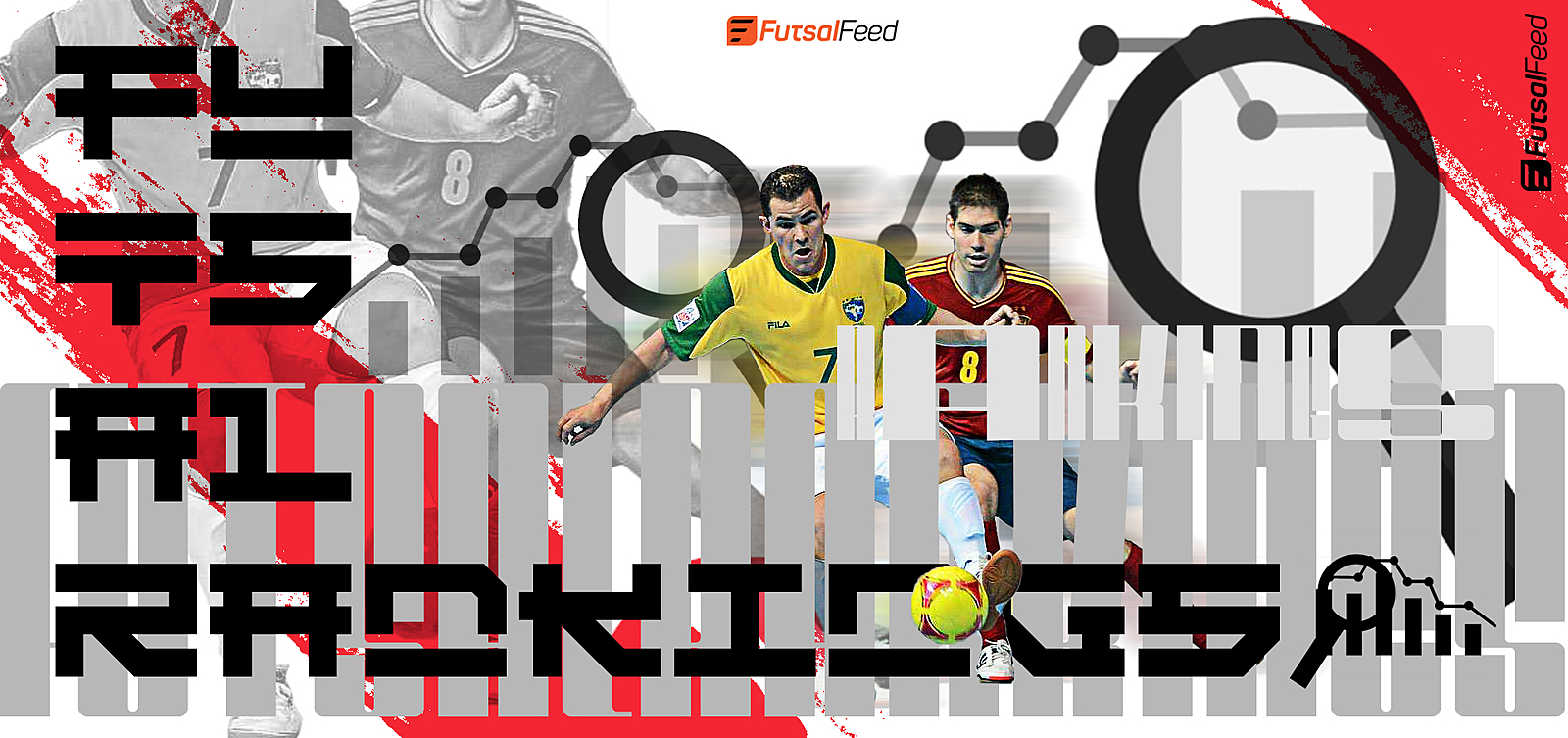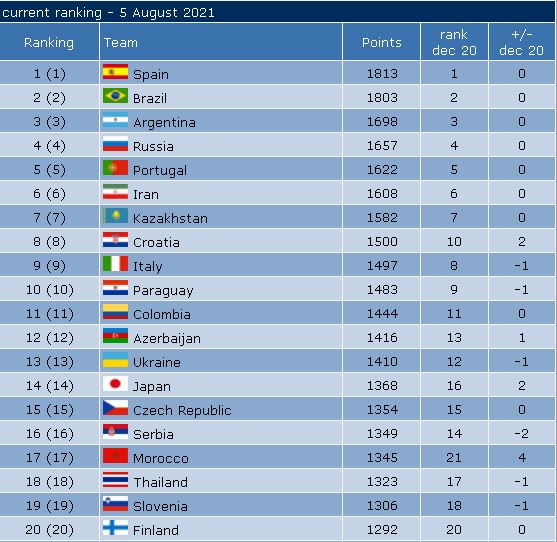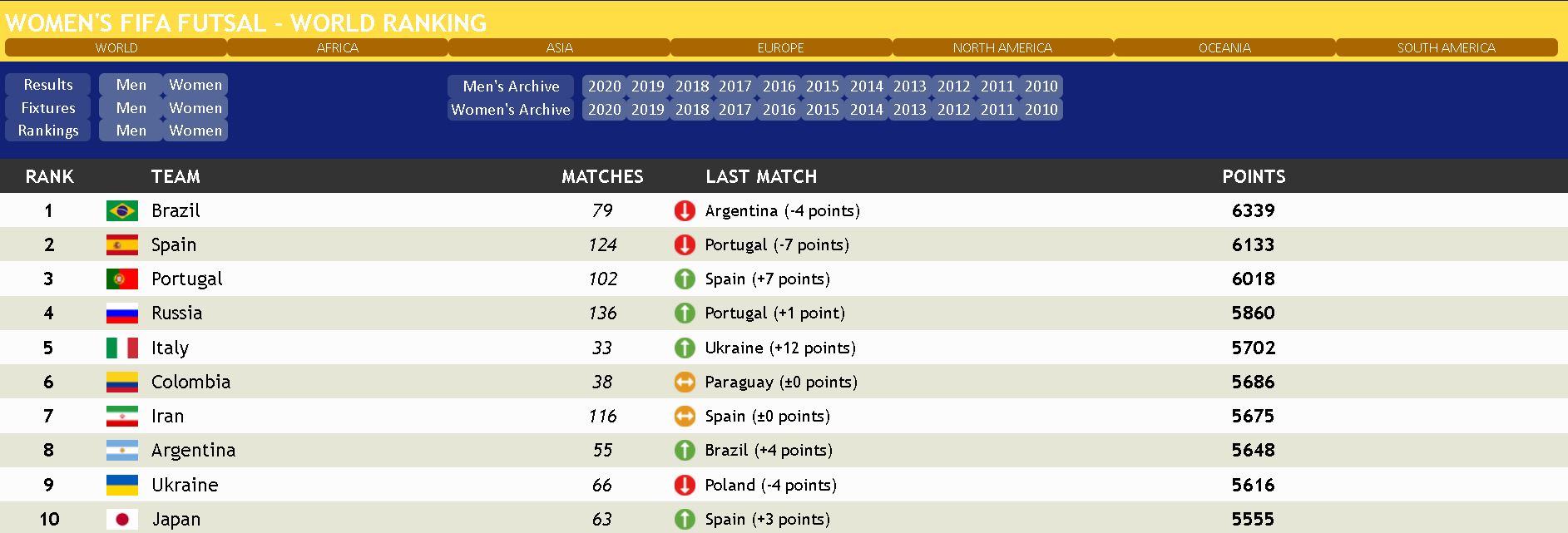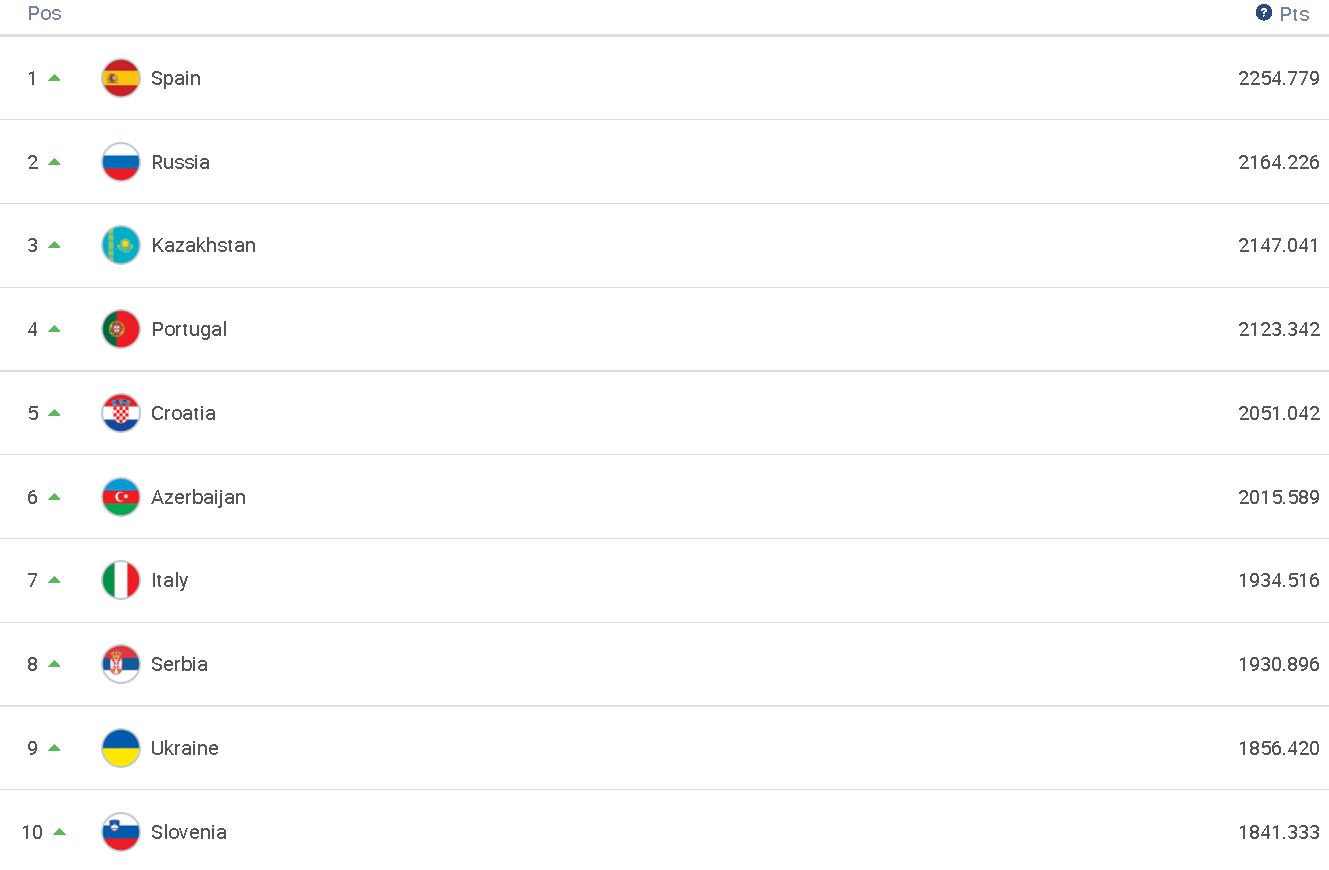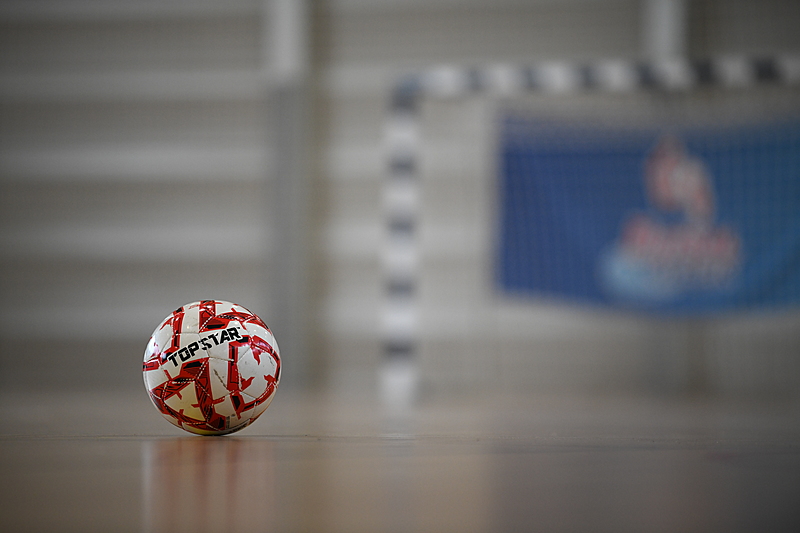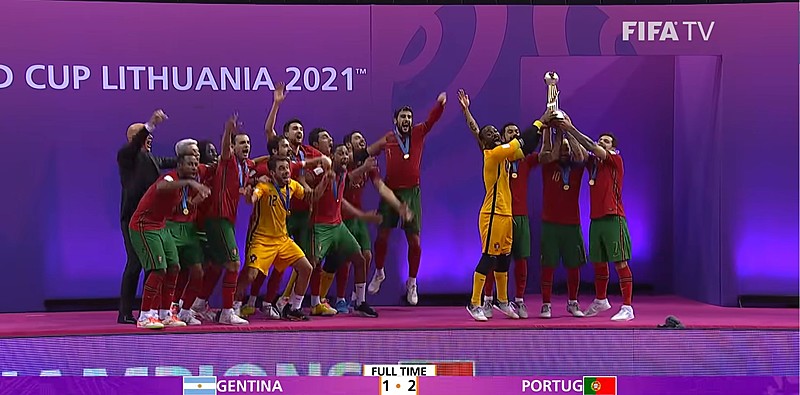Who do you think is the best-ranked futsal national team in the world? Unofficial sources say it is Spain, but Brazil is not far off. Argentina, the current World Champion, is the third best-ranked team according to the same source.
People generally agree that Russia comes next, but it seems that different sources cannot agree if Kazakhstan is a better-ranked team than Portugal.
Moreover, as the list continues, we encounter more of these problems because futsal does not have an official and uniform ranking system.
We wish to discuss this problem in this article in the hope to generate momentum to create a uniform system once and for all.
(The rankings above are unofficial futsal world rankings from 5 August 2021)
Futsal Rankings
Like in every sport, official rankings are important because they determine the team’s positions in tournament draws. Also, rankings give an overall idea of where one team is positioned regarding other teams' strengths and lets you know how hard you have to work to catch the teams in front.
However, futsal does not have an official ranking system for national teams and clubs, unlike some sports. Nevertheless, that does not mean we are completely ‘in the dark’.
For years now, futsalworldranking.com has been meticulously gathering information and match results and then using the Elo formula to provide a futsal ranking system.
What is Elo ranking system?
Simply put, the Elo ranking system is nothing more than a method for calculating a certain team's current relative skill level.
The name Elo is derived from the creator of his method, Arpad Elo, who invented it to improve the ranking system in chess. However, many sports, including association football, also use this rating method.
The Elo method adds or subtracts points according to teams winning or losing a game and a mathematical formula is used to determine the number of points that will be added or subtracted from their pre-match coefficient.

The formula also takes into consideration the importance of the match to determine the final number. In other words, a victory in the qualifying stage of the tournament is worth less than a victory in the tournament final.
Also, a lower-ranked team defeating a higher-ranked team will generate more points than if they defeated a team around their level. How much more points exactly is determined by the difference in coefficient between the two teams playing. Of course, if a better ranking team defeats a lower ranking team they will generate fewer points than another way around, because it is ‘expected’ of them to win the match, according to the Elo formula.
Futsal World Rankings
The go-to website to check out the worldwide futsal rankings is still futsalworldranking.com. However, the website is an unofficial source of information, which is heavily dependent on the match results gathered from various sources. This means that there is a chance that not all match results are included and therefore the team’s overall points may be off the mark.
Nevertheless, futsalworldranking.com offers its users an overall futsal ranking list that has been updated every Monday for years now and thanks to the lack of the official ranking system by regional organizations, or FIFA for that matter, has been widely used as a reference point.
The website also enables the users to see the rankings for every confederation.
(Photo: Unofficial Women's World Futsal Rankings taken from theroonba.com on 5 August 2021)
One more unofficial futsal rankings website that gets love from futsal fans and pundits is theroonba.com. Data on this website is also gathered with great care and although the rankings are unofficial many futsal fans consult it when looking to compare rankings.
What makes it different from other futsal ranking websites is that it offers a huge results archive of futsal matches for the last 10 years, but more importantly it is the only website so far that offers women's national futsal rankings, so we advise you definitely check it out.
UEFA Futsal Rankings
#UCLFutsal preliminary round draw in full 🏆
— UEFA Futsal (@UEFAFutsal) July 7, 2021
🗓 20-25 August
➡ Group winners and best runner-up go to main round, joining 23 top seeds
Since the start of the UEFA qualifiers for the 2020 FIFA Futsal World Cup, the UEFA has implemented its own Elo rankings, but only for national teams.
UEFA has official rankings for clubs as well, but the information is not generally available and it is shared once each year before the draw for the new Futsal Champions League campaign.
For this season's Futsal Champions League, a draw has already been made for the Preliminary Round. Teams drawn were grouped according to their coefficient, with the best teams being awarded a bye, also according to their coefficient. It is still unclear why these club's coefficients are not publicly available on UEFA's official website.
Unofficial European clubs’ ranking exists, but the website in question does not offer any explanation on how they generate their results and should not be taken into account as an official and 100% correct source.
Unlike the futsalworldranking.com website, UEFA does not include friendly match results for national teams, but only matches played in official tournaments (Futsal Euro, FIFA Futsal World Cup, and its qualifying tournaments).
Therefore, the difference concerning the teams’ ranks between UEFA and futsalworldranking.com is evident immediately. However, since the UEFA started to take note of teams’ coefficients, UEFA’s ranking system is the official one and should be advised when looking at teams’ futsal ranks.
(Photo: UEFA's official futsal rankings on 5 August 2021)
Futsal Needs Official Ranking System
The only other regional organization that offers an official national futsal team ranking list is CONCACAF.
As this is an official source, this ranking list should be considered official, but it is still unclear how these rankings are generated.
No other regional organization offers an official source for futsal rankings. What is even more disconcerting is that FIFA, as the head governing body for futsal, also does not have an official ranking for futsal teams.
Since the draw for the FIFA Futsal World Cup has been done according to some ranking system and teams were divided into pots that corresponded to their strengths, it is obvious that FIFA does have a ranking system in place. What is unclear is why they decided not to publicly share this ranking and the method that was used to generate the result.
Thoughts? 🤔 #FutsalWC #futsal pic.twitter.com/vhBcl9nMeK
— FutsalFeed (@FeedFutsal) June 1, 2021
Futsal desperately needs an official uniformed world ranking system for national teams and regional organizations should invest more to publicly share clubs’ coefficients. It would make this sport easier to follow to everyone who wishes to compare the relative strength of his or her team and it would definitely put things into proper perspective.
There are still many unknowns in futsal concerning the relative strength of one team or a league. A uniform ranking system would go a long way to clear these unknowns and make futsal more engaging for fans.
